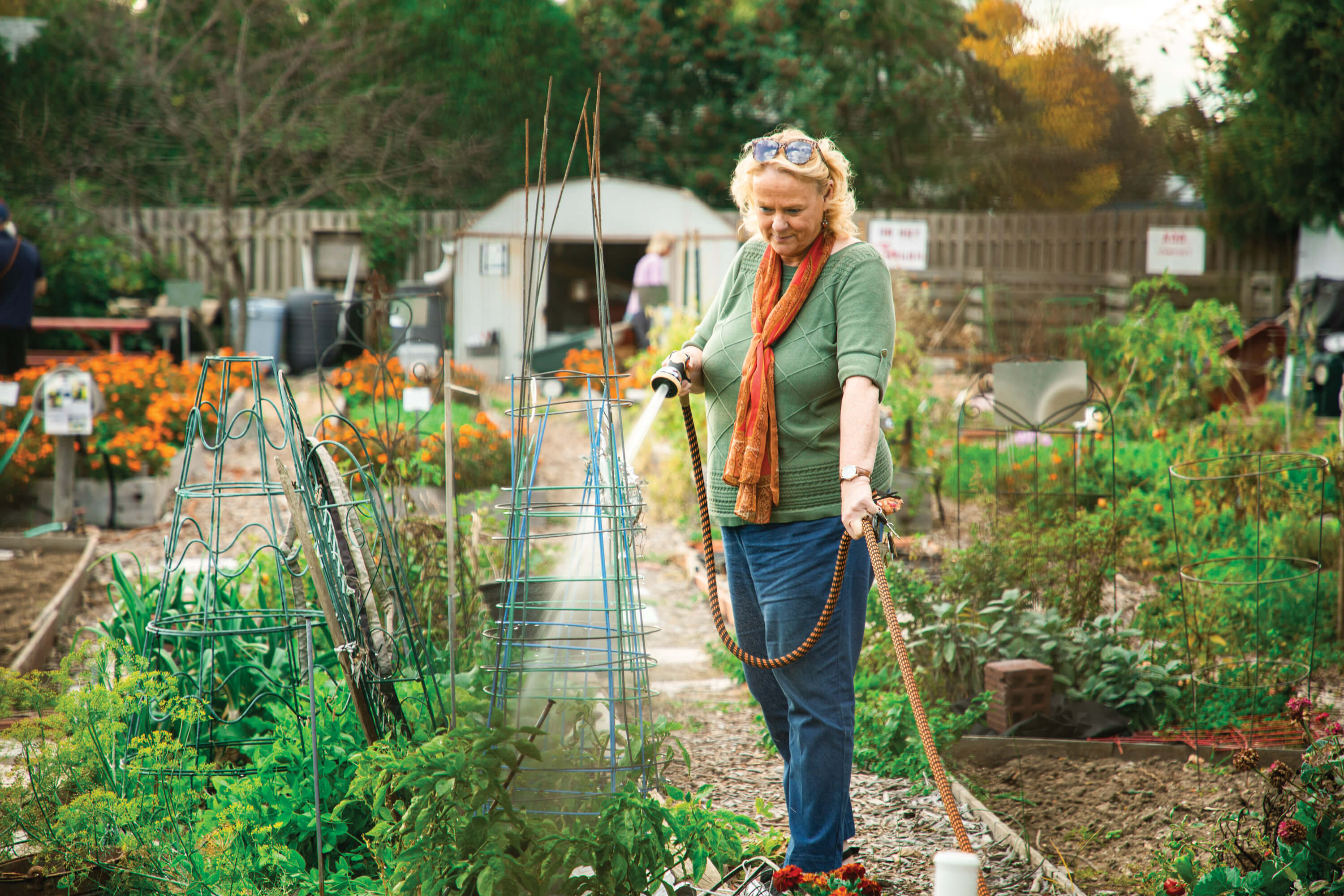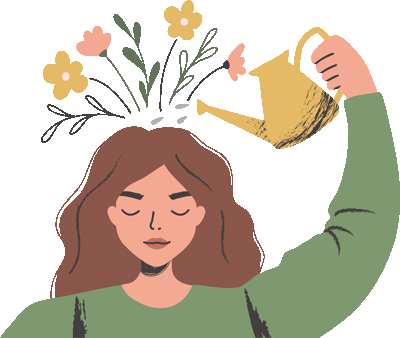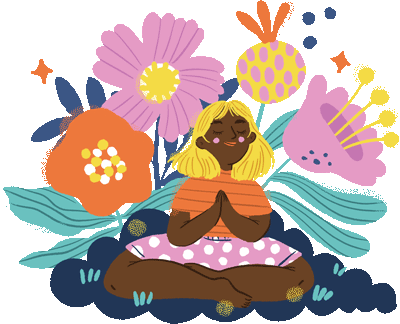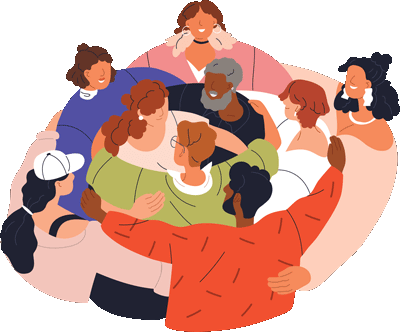
What Are the Hidden Perks of Gardening?
A horticultural therapist explains how sowing seeds can help you reap more than just a bountiful harvest.
Teresa Maltz, a lifelong gardener and certified horticultural therapist, serves as the garden coordinator for Monmouth University’s Virginia A. Cory Community Garden—a vibrant space where campus and local community members come together to grow organic produce including tomatoes, peppers, green beans, kale, and herbs.
Garden members can cultivate their own plots, and the garden also maintains several community plots dedicated to growing food for donation to local food pantries. Last year alone, these efforts produced over 3,400 pounds of fresh produce to support Monmouth’s neighbors in need.
While the harvest itself is a delicious and cost-saving reward of gardening, the act of working with the soil offers numerous additional benefits for mind and body. Maltz explained how gardening can enhance your mental, social, and physical well-being.
Reducing Stress

Gardening provides numerous stress-relieving benefits, from immersing oneself in the quiet, calming atmosphere and spending time in nature to the simple joy of stepping away from our screens to soak up some fresh air and sunlight. It’s a powerful reminder of what we can accomplish, shifting focus away from what we can’t, Maltz says. It’s also a break from the seemingly endless to-do lists that govern daily life—even a small accomplishment like watering a strawberry bush can bring a sense of pride. Activities such as arranging flowers also offer a creative outlet, resulting in something beautiful to enjoy.
Additionally, the selfless act of harvesting flowers, fruits, or vegetables to share with others further boosts emotional well-being and fosters a sense of purpose and connection.
Increasing Mindfulness

Gardening demands presence, making it a natural practice in mindfulness. For instance, picking tomatoes requires quiet focus and sensory engagement: Which one is the right color? Is it too firm, or is it ready to pick? The garden’s aromas—from blooming flowers to earthy compost—further draw attention to the present moment, keeping the gardener fully immersed in the experience.
In fact, the University’s Community Garden plays a key role in training students specializing in professional counseling with a focus on ecotherapy—a technique that uses contact with nature as a therapeutic method to strengthen the emotional connection between clients and the natural world. In the garden, students are guided through a meditation that taps into every one of their senses in ways they may overlook in everyday life, Maltz says. They’re encouraged to quietly observe the flowers, touch the leaves, and take in the scents of the crops. This multisensory experience serves as a practical tool for staying present and fully immersed in one’s natural surroundings, a practice accessible to anyone.
Fostering Community

While gardening is often seen as a solitary activity, it can also foster meaningful social connections. This is particularly evident in the University’s Community Garden, where campus members and the broader community come together in a shared space to work toward common goals and collaborate on solving shared challenges. Participants exchange resources such as seeds, water, rakes, and tomato cages, building a sense of camaraderie.
But even home gardeners can experience this sense of connection—the more time they spend tending their yards and surroundings, the more opportunities they have to meet neighbors and feel a stronger bond with their community, Maltz says.
Staying Active

The physical benefits of gardening cannot be overstated. Activities such as walking, bending, squatting, digging, pushing a wheelbarrow, shoveling, weeding, and lifting (always with the knees and never with the back!) require large muscle movements, while tasks such as tying up tomatoes or planting tiny seeds enhance fine motor skills. This broad range of physical activity benefits people of all ages, helping to maintain strength, mobility, and coordination—essential for good health and independence throughout life.